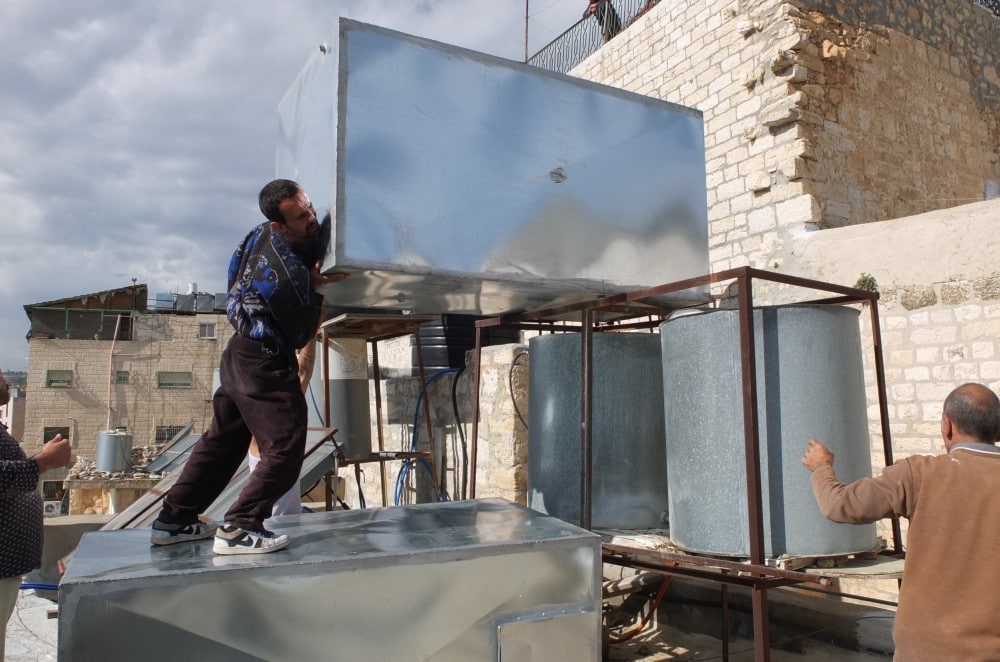
A water problem, and some concrete help in Bethlehem: new water tanks
Water and the control of water resources is one of critical issues in the Mediterranean region and, more specifically, in the Middle East. Since the beginning of the Israeli-Palestinian conflict, water resources have not met the basic needs of the inhabitants. The escalation of the conflict has exacerbated the problem in recent years, and for the Palestinians it has become impossible to become connected to the system or to dig wells beyond a certain depth. Further aggravating the situation regarding the exploitation of water resources, particularly in the Palestinian case, is the inefficiency of the distribution system, antiquated and in poor condition, along with a disastrous sewerage system that allows only very limited use of recycled goods.
After more than thirty years, around 180 villages in the West Bank are still not connected to a distribution system and approximately 75% of Palestinian cities and villages receive water for only a few hours a week. In order to maintain reserves, the population is forced to store water in bins and other containers, which often present health and sanitary risks. Domestic water consumption in recent years has been in the range of 20-35 liters per day, far below the 150 liters established as a minimum daily norm by the World Health Organization (WHO).
The lack of water is today one of the major problems facing Palestinian society, significantly affecting the daily lives of hundreds of thousands of people. The problem is particularly acute in the old town of Bethlehem, where beneath the roofs of the houses there are often tanks that are rusted and full of cracks which, in addition to wasting scarce resources, create health risks for those who use them. Thanks to the generous support of ACA DE VITA in connection with the project “Wishing for Water”, Association pro Terra Sancta has been able to replace the old tanks of some of the poorest families in Bethlehem with new tanks that are able to keep the water clean and healthy. One of these fortunate families is that of Elyas Abu Jaber, who lives with his wife and five children in one of the oldest houses in the center of Bethlehem. His water tanks were broken and rusted and in order to remove dirt and debris the family was forced to filter tap water using gauze, and then boil the water before using it. Today Elyas, his wife and children, in addition to no longer having to continuously refill from tanker trucks which has provided a significant economic savings, are able to enjoy clean, clear and healthy water.